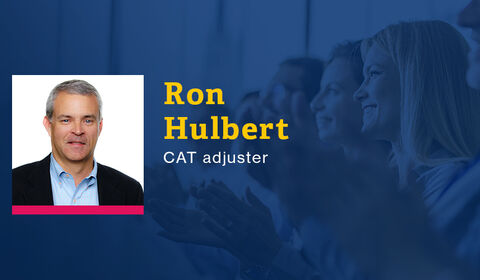Being a successful adjuster goes beyond completing a claim. A prosperous adjusting career requires daily investment and a lot of self-determination. However, the reward for going the extra mile is worth it. It’s vital to bring forth a bountiful skill-set to get the most out of this profession.
Essential skills for the job include being able to complete administrative tasks, such as filing, typing, copying, scanning and having proficiency with technology. Xactimate is one of the most common estimating software systems that can account for up to 75 percent of the work done on a claim. While adjusters often learn on the job, having these abilities will only provide additional support to ensure success. Adjuster’s day-to-day responsibilities include documenting conversations with the insured, reviewing photos and drafting final reports. They must also be able to juggle multiple claims so it’s essential that individuals have excellent organization, communication and time management skills. Licensed adjusters must also maintain an interest in ongoing education as they are required to remain up-to-date on skills, certifications and licenses.
Monique Strickland, an independent adjuster in Texas, believes there are three things that help her succeed in her job: empathy, a willingness to learn and exceptional customer service. When dealing with the aftermath of a catastrophe, it’s important to show compassion and understanding to the insured. Empathy plays a huge role in providing exceptional customer service, and it’s important to be able to explain the claims process to the insured. According to Monique,” Adjusters who are customer-driven will not allow themselves to fail.”
Crawford leader, Griff Rogers, believes successful adjusters must be organized, goal-driven, productive and excellent communicators. He agrees with Monique that adjusters must have a sense of empathy and be able to create a trusting relationship with policyholders within their first interaction.
Griff advises adjusters to take advantage of as many training opportunities as possible. There are many nuances of the adjusting industry, and it is useful to expose oneself to different kinds of claims and people. Obtaining certifications and networking will make an adjuster more marketable. He recommends doing ride-alongs with seasoned adjusters to learn more about large scale claims and the processes behind them.
Since the start of the coronavirus pandemic, adjusters have relied on technology to complete the job in order to remain appropriately distanced and healthy. The transition to these virtual tools has been challenging and game-changing for the industry. Catastrophe Resource Coordinator, Susan Thompson, does not think that these tools will go away post-pandemic and that using these software systems will become the new way of adjusting. She stressed that proficiency and knowledge of these tools will become an essential skill for all types of adjusters.
Operations Manager, Michael Bradbury, is utilizing different technologies, including drones, virtual reality (VR), and augmented reality (AR), within the training curriculum for adjusters. He encourages adjusters to explore how these tools can be used creatively to improve the claims process.
“Successful adjusters will be those who embrace the technology,” he said. “They will have to be smarter, work harder and be tech-savvy.”
The adjusting industry is constantly changing, so it’s important to develop a desirable set of skills while acquiring relevant licenses and certifications. Adjusters should take advantage of deployment and training opportunities. They should also use every claim process as a chance to learn and grow. If adjusters dedicate themselves to the process, it will make them stand out while ultimately leading them to success.
Learn more about Crawford’s upcoming training opportunities here.



